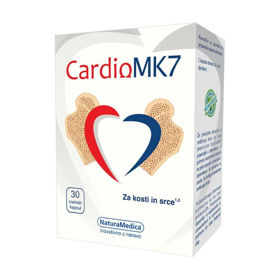Customer question:
What is ventricular tachycardia? Anonymous customer's question
Pharmacist's answer:
Ventricular tachycardia (VT) is a type of heart arrhythmia in which a fast and regular heartbeat originates in the lower atria of the heart, called the ventricles.
This is a more severe form of tachycardia as it can lead to serious complications, especially if it is persistent or occurs in people with existing heart conditions.
Causes of ventricular tachycardia include:
- Heart disease: coronary artery disease, previous heart attack, heart valves, or other heart abnormalities can contribute to the development of ventricular tachycardia.
- Cardiomyopathy: various cardiomyopathies affecting the heart muscle can contribute to VT.
- Damage to heart tissue: Damage to heart tissue from trauma, surgery, or other causes can increase the risk of ventricular tachycardia.
- Electrolyte disorders: An imbalance of electrolytes such as sodium, potassium, and calcium can affect the electrical conduction of impulses in the heart.
Interesting reading: Sinus tachycardia
Interesting reading: Bradycardia













